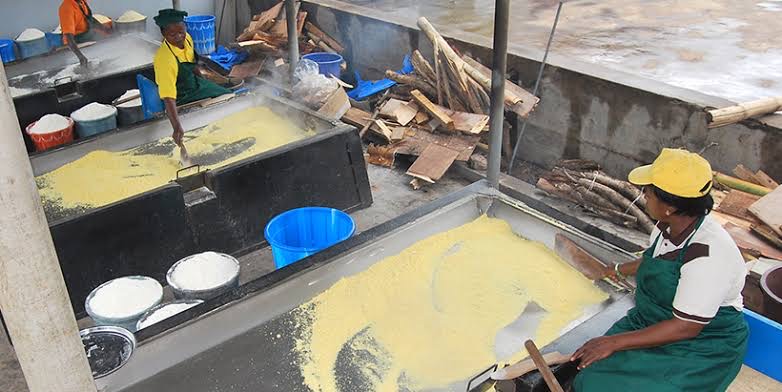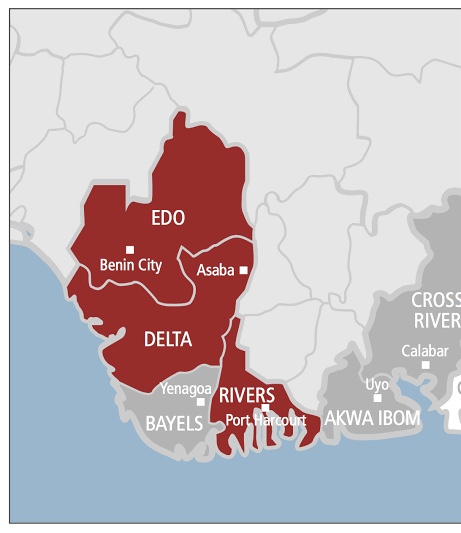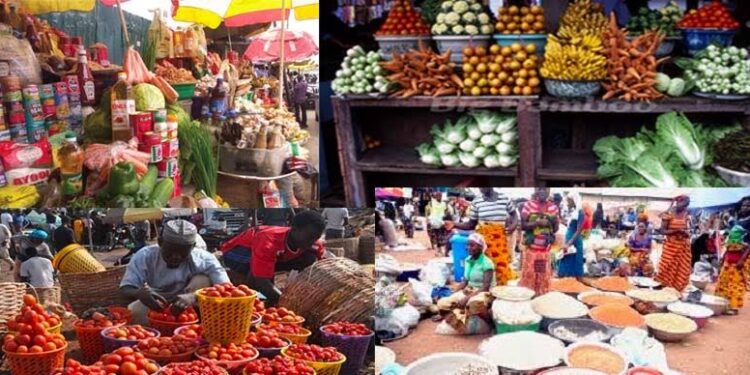Some farmers and food sellers in the South-South region have expressed concern over the rise in food prices despite the harvest season.
Stakeholders who spoke during a survey in Akwa Ibom, Rivers, and Cross Rivers states said there was a notable fall in food prices during the last harvest season.
Stakeholders maintained that few food items recorded even a slight fall in prices during the current season.
Speaking in Port Harcourt, Rivers, a foodstuff seller, Benedicta Amadi, said consumers have not felt the impact of the harvest season due to high transportation costs.
Mrs Amadi said a large part of their business profits are currently going towards transportation resulting in increased costs. She explained that in the 2023 harvest season, a large yam tuber was sold for 800 naira, but now the price of the same size yam is between 4,000 and 6,000 naira.
“Perishables items such as tomatoes, onion, and pepper recorded an incomparable price disparity between 2023 and 2024 harvest seasons. A basket of pepper which was sold between N1,500 and N3,000 in 2023 is now almost N16,000. It is the same with tomatoes, onions, and others,” she said.
Amadi said the price of rice, beans, and maize may fall during the dry season in some parts of the country. “This might not be felt in Rivers State if the current transportation situation persists” she added.
He called on the Federal Government to aggressively implement relief measures for the transportation sector to positively impact food prices.

Similarly, cassava farmer Godwin Akandu noted that the price of “garri” and vegetables is now only slightly lower than it was a few months ago.
He attributed the price difference to the early harvesting of cassava and vegetables, a measure taken by farmers to reduce losses during the flood disaster.
He said, “Garri, a cassava by-product and staple food for households in the state, has recorded a huge price gap between the 2023 and 2024 harvest seasons. A basin of garri sold for N7,000 in 2023, now sells for between N16,000 and N18,000, since both the production and transportation processes are dependent on petrol.”
Chairman, Etche Farmers Cooperative Union, Akandu, called on the state government to urgently join the Federal Government’s agriculture programme to improve food availability in the state.
He called on the state government to work with farmers to invest in mechanised agriculture as is being done in other states to address the challenge of rising food prices.
Mr. Christopher Tamuno, Agriculture Development Programme Manager, in his contribution, revealed that the state would soon benefit from the allocation of agricultural inputs by the Federal Government.
He explained that the distribution has been delayed due to hunger protests across the country but that it is part of the Federal Government’s agricultural relief package aimed at boosting food production.
Tamuno, however, assured that the ADP is ready to further improve agriculture through training and retraining of farmers in the state.
In Akwa Ibom, Happiness Oboh, a foodstuff seller at Udua Nka Market in Eket, said there has been negligible change in the price of food items in the current harvest season.
“A bag of garri which sold for N120,000 in May, now sells for N105,000, but a tuber of yam which sold for N10,000 in May currently sells for N16,000,” she said.
Oboh added that a bag of beans sold for N55,000 between February and March, but now it is between N80,000 and N250,000.
He said a bag of rice is now selling for N80,000 to N85,000 compared to the January price of N50,000.
He said some market associations have also contributed to the current price increase.
Bassey Inwang, chairman of the All Nigerian Farmers Association, Akwa Ibom State chapter, also in his speech cited high fuel costs, herdsman threat, and inadequate arable land as some of the factors that are causing the food price hike.

Inwang outlined the parameters that the government should set to ensure the availability and adequate supply of food to the people. He said timely distribution of agricultural inputs, subsidies, and credit to farmers would encourage early cultivation as agriculture is a time-sensitive activity.
“Others include availability of farmland to farmers to cultivate, checking the government policy in disbursing loans to the farmers and availability of modern machines,” he said.
According to him, Nigeria should consider adopting mechanized agriculture to ensure higher crop yields.
Inwang cited insecurity as one of the reasons for food shortages, saying fear of being killed or injured has led many people to abandon farming.
He further explained that herders’ activities have adversely affected agriculture in the state, citing the story of a woman whose two-hectare cassava farm along the airport road was destroyed by cattle.
Inwang also stressed the importance of food storage facilities, especially fresh produce such as tomatoes, vegetables, and fruits, and assured that food prices would soon fall as the harvest season is approaching.
In Cross River, Mubarak Ibrahim, a trader who plies his trade at the popular Bogobiri area near Watts Market in Calabar, said the prices of some food items have come down slightly. The trader, who deals in staples such as rice and beans, said a 50kg bag of locally grown rice was selling for N85,000 compared to N88,000 in July.
Ibrahim added that a 100kg bag of white beans is now selling for N190,000 to N195,000, up from N210,000 last month.
He explained that the price of brown beans remains at N220,000 per 100kg bag, while the price of white maize has dropped from N120,000 to N90,000, while the price of yellow maize is still at N120,000 per 50kg bag.
Similarly, Ibrahim Samsudeen, a tomato trader, said the price of tomatoes in Nigeria remains high compared to those in Cameroon.
Samsudeen explained that a basket of Cameroonian tomatoes that sold for 28,000 naira in July is now selling for 24,000 naira.
He said the price of pepper has dropped drastically, with a 50kg bag of pepper that sold for about 200,000 naira dropping to between 90,000 and 100,000 naira.
Speaking on the matter, Cross River State Commissioner for Agriculture and Irrigation Development, Johnson Ebokpo, said the state government has procured 108 medium tractors to be distributed to cooperatives in the state.
He said 50,000 hectares of rice have been started in Ogoja while 90 hectares of cassava are being cultivated in 10 communities in the state. He said the farms are managed under the jointly funded Niger Delta Livelihood Improvement Family Enterprise Project programme.
Ebokpo said with the implementation of the current policy, food production in the state would quadruple by the 2025 planting season.

































